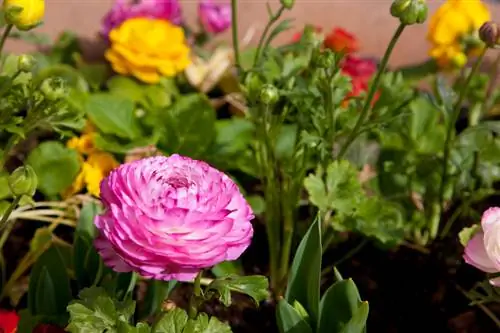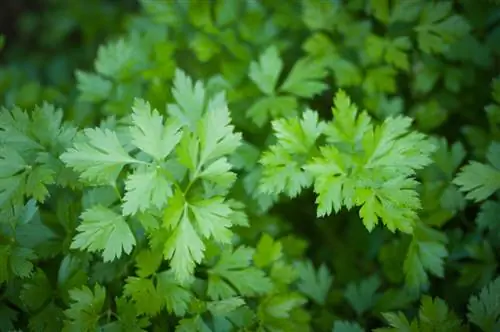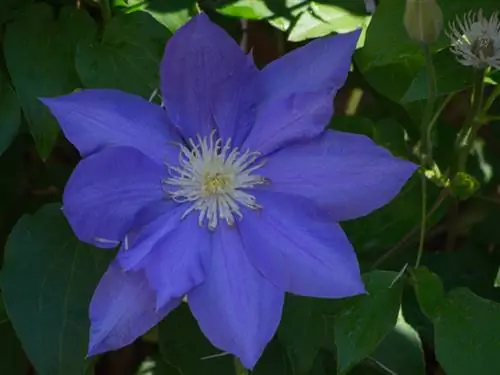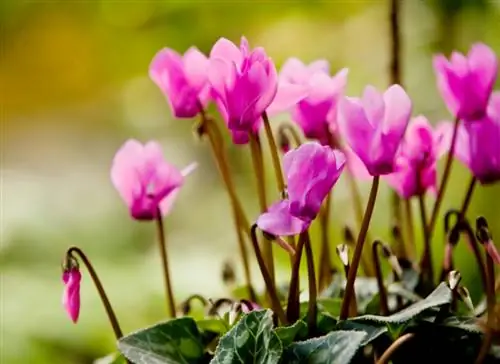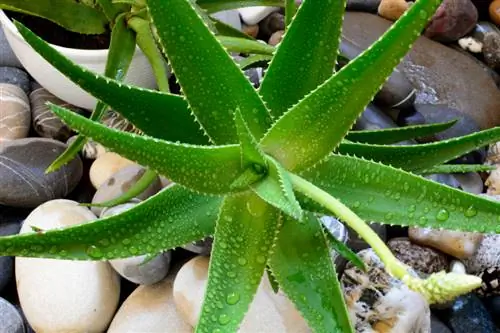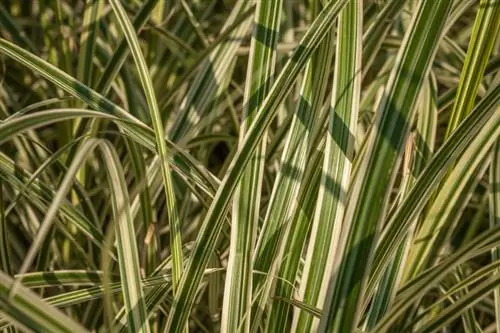- Author admin [email protected].
- Public 2023-12-16 16:46.
- Last modified 2025-01-23 11:20.
They stand well protected in their assigned location in the garden. But without any care at all, the ranunculus will not remain blooming and he althy for long. Every now and then a little maintenance work is worthwhile. What matters?
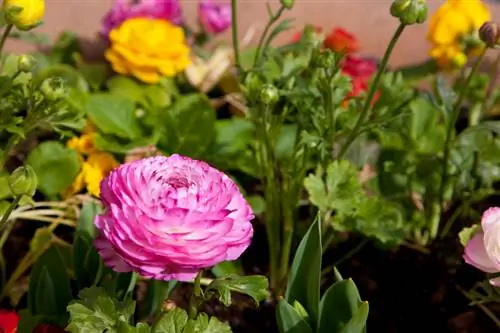
What are the most important care measures for ranunculus?
Caring for ranunculus includes regular watering to avoid drought, fertilization to extend the flowering period, protection in winter, and the removal of dried and faded parts. Diseases and pests can occur when plants are weakened.
Should you water ranunculus regularly?
The top priority when dealing with ranunculus is: never let it dry out! These perennials need an evenly moist substrate. It is important to prevent drought, especially for plants grown in pots or containers. You should water such specimens regularly!
Outdoor plants need to be watered regularly, especially in dry conditions and in sunny places. They need the moist substrate to maintain their flowering. However, the water should be able to drain easily. It is important to avoid waterlogging!
After the flowering period comes to an end, watering should be gradually reduced. The plant is thus prepared for the autumn and winter periods. It no longer needs water because its above-ground parts die off and it retreats into its tuber.
How to protect young plants in winter?
Not only young ranunculus, but also generally sensitive varieties should be protected in winter:
- Specimens sown in autumn overwinter in pots frost-free
- Cover tubers outdoors with brushwood
- in rough locations: take tubers out of the ground
- Overwintering the tubers: in a cool, dry, airy place (e.g. wooden box in the cellar)
Do ranunculus need additional fertilizer?
It is not absolutely necessary to additionally fertilize ranunculus. But adding fertilizer extends the flowering period and strengthens the plants. Conventional flower fertilizers (€18.00 on Amazon), but also simple nettle manure are suitable as fertilizers. Fertilizer is recommended for potted plants every 2 to 4 weeks.
Here are a few more tips on fertilizing:
- use liquid fertilizer for potted/container plants
- Set fertilizer applications in September
- fertilize until the leaves die off
- Provide outdoor plants with compost in spring
How do you prune perennials correctly?
The ranunculus don't need pruning either. You should only remove diseased, dried out and withered parts (flowers and leaves) regularly. If you cut off withered flowers immediately, you can prolong the flowering period because the plant no longer invests its energy in producing seeds.
Are ranunculus attacked by diseases and pests?
Ranunculus are often so weakened by drought and their long and strenuous flowering period that they become more susceptible to pests. Aphids often appear on them. Snails can also have a bad time with them.
In terms of diseases, powdery mildew can appear on the leaves in dry conditions or during periods of increased wetness lasting several days. Parts affected by mildew should be quickly cut off. However, the plant usually does not recover, so it is better to dispose of it.
Tip
The double-flowering ranunculus varieties in particular need a lot of water!

